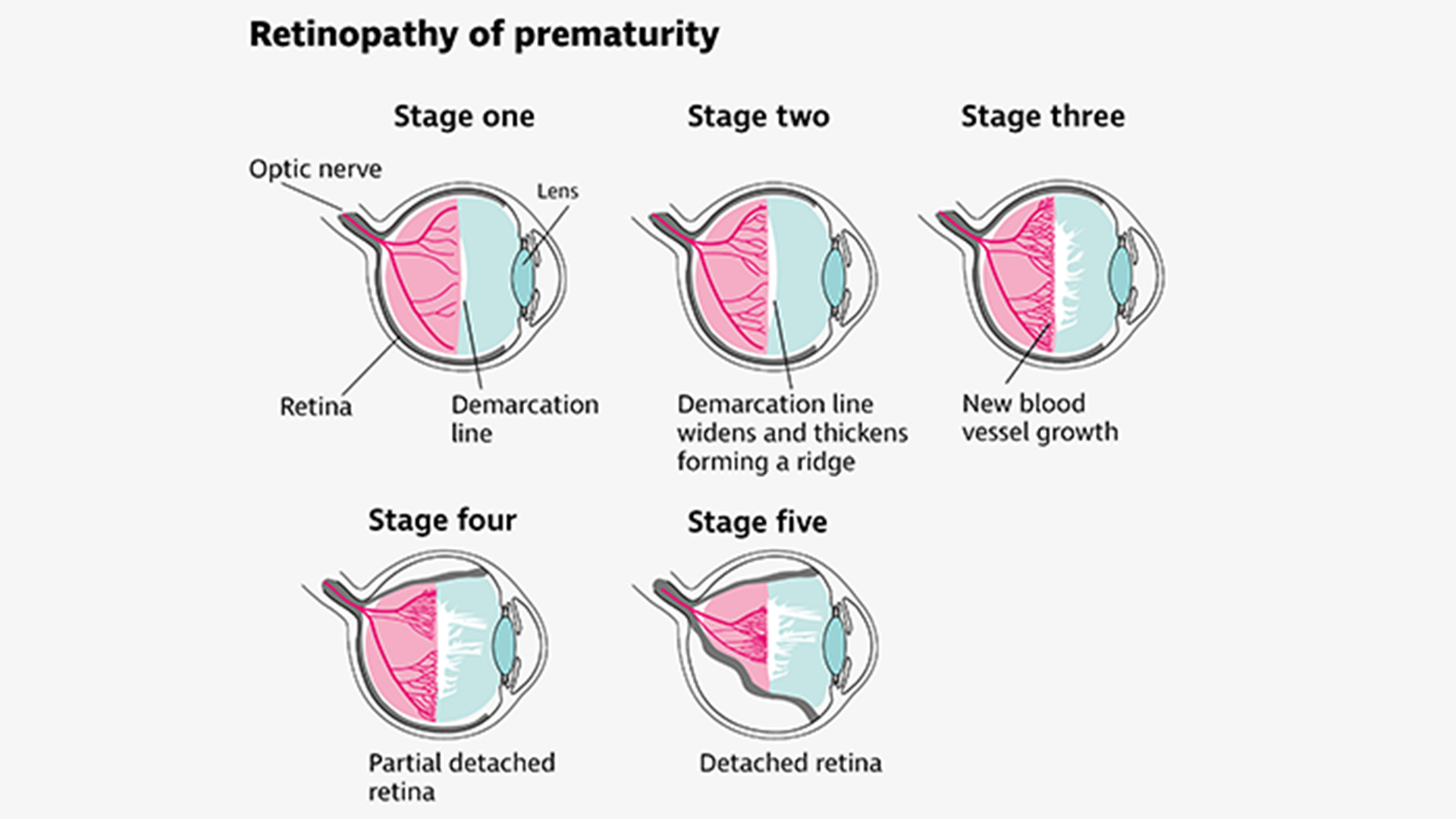
Retinopathy Of Prematurity(ROP)
Retinopathy of prematurity is when the retinal blood vessels don’t develop normally in babies that are born earlier than their expected date of delivery.
What is retinopathy of prematurity (ROP)?
The retina is a delicate tissue made up of light-sensitive cells that lines the inside of the back of our eye. The retina converts light that we see into electrical signals that travel along the optic nerve to the brain. The brain interprets these signals so we can “see”. The retina is supplied with blood by a delicate network of blood vessels on its surface and by a layer of blood vessels underneath the retina.
Our retina needs a good blood supply to work properly. As a baby develops in the womb, the blood supply for the retina starts to develop around 16 weeks into pregnancy and only finishes around 40 weeks when a full-term baby is born. At full term, a baby's blood vessels are fully developed and can keep the baby's retina healthy.
What causes ROP?
The reasons why babies develop ROP are complicated, but ROP is more likely to occur in babies that:
- are born very prematurely – particularly those born before the 28th week of pregnancy
- have a low birth weight of less than 1,500 grams
- required oxygen treatment soon after they were born.
